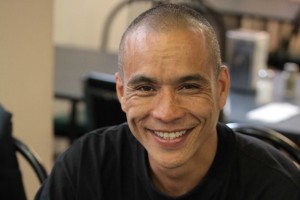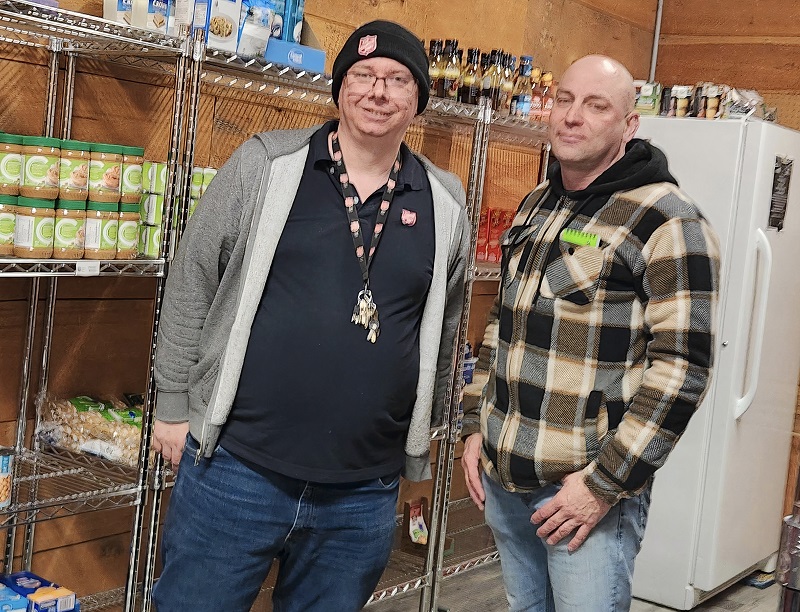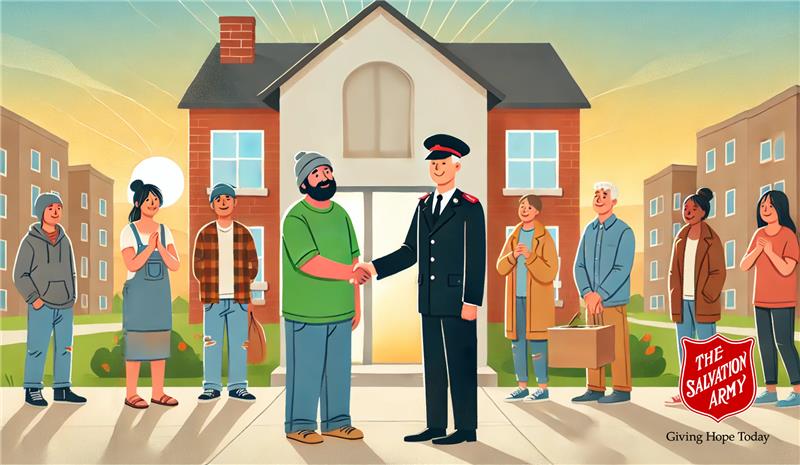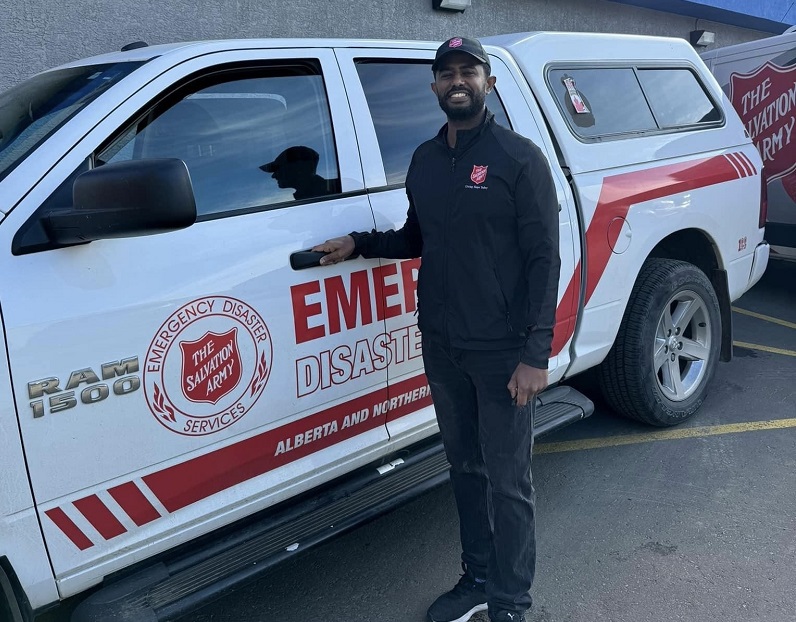Salvation Army Housing and Homeless Supports Provide Help, Healing and Hope

Every night, at least 30,000 Canadians sleep on the streets, in an emergency shelter or in temporary accommodations. Thousands more live in precarious situations, at risk for homelessness.
In Toronto, five Salvation Army shelters—Maxwell Meighen Centre, Hope Shelter, Gateway, Florence Booth House and Evangeline Residence—offer an open door, welcome and support to people in crisis. Recently integrated under Toronto Housing and Homeless Supports, these shelters meet basic needs for food, shelter and clothing, as well as provide pastoral care, addictions counselling and housing help.
“We are moving from services that are grounded in an emergency response to an integrated approach to housing stability,” says Bradley Harris, executive director, Toronto Housing and Homeless Supports. “We want to help people find—and keep—permanent housing. That means offering programs that will work for each person who turns to The Salvation Army for assistance. There is no ‘one size fits all’ solution.”
 Ieshia has been at Florence Booth House, a women’s shelter, for two weeks. “I went down to my lowest. I didn’t have a place to stay. I was on the street,” she says. “It was bad. Rough.” Somebody told her about the shelter. “Here I have a roof over my head, I have food to eat.” She’s now in a substance-abuse program, and hopes to get a job, her own place and go back to school.
Ieshia has been at Florence Booth House, a women’s shelter, for two weeks. “I went down to my lowest. I didn’t have a place to stay. I was on the street,” she says. “It was bad. Rough.” Somebody told her about the shelter. “Here I have a roof over my head, I have food to eat.” She’s now in a substance-abuse program, and hopes to get a job, her own place and go back to school.
 Aaron is staying at Hope Shelter for a few days while he waits to enter the Harbour Light treatment program. He’s been in treatment before, but has hope for the future. “Underneath everything, I do have faith in God,” he says. “Part of faith is belief in self, and I think I still have enough faith to be tenacious and try again. I can’t give up on myself, because I really want to have a life.”
Aaron is staying at Hope Shelter for a few days while he waits to enter the Harbour Light treatment program. He’s been in treatment before, but has hope for the future. “Underneath everything, I do have faith in God,” he says. “Part of faith is belief in self, and I think I still have enough faith to be tenacious and try again. I can’t give up on myself, because I really want to have a life.”
 Laura has found safety and support at Evangeline Residence after experiencing domestic violence. “I’m using it as a stepping stone in my life,” she says. She is studying towards a certificate in family counselling at Centennial College, and wants to help other women. “They’ve been crushed with negative, critical words, with failed expectations. Maybe they’ve lost their children, their spouse, their job—all they’ve done is lose all their lives. But they are not losers,” she says. “God has given us all something. We all need each other. We’re not carbon copies. God is a creator. We’re all necessary.”
Laura has found safety and support at Evangeline Residence after experiencing domestic violence. “I’m using it as a stepping stone in my life,” she says. She is studying towards a certificate in family counselling at Centennial College, and wants to help other women. “They’ve been crushed with negative, critical words, with failed expectations. Maybe they’ve lost their children, their spouse, their job—all they’ve done is lose all their lives. But they are not losers,” she says. “God has given us all something. We all need each other. We’re not carbon copies. God is a creator. We’re all necessary.”
By Giselle Randall
Photo courtesy: Warren Pot



